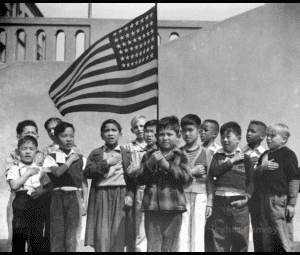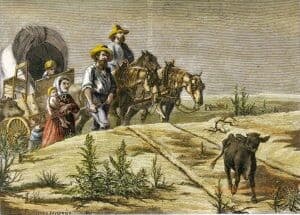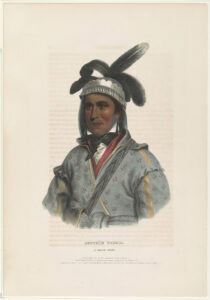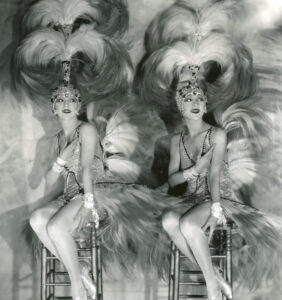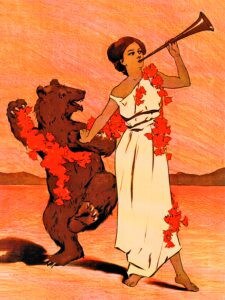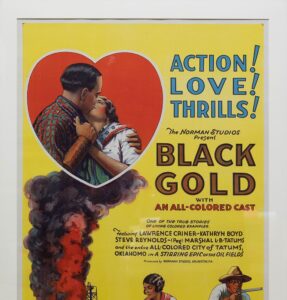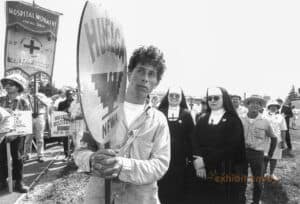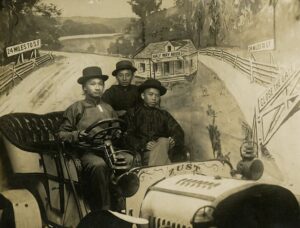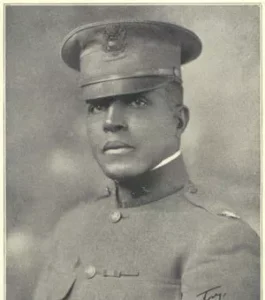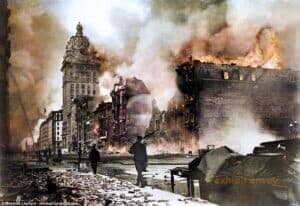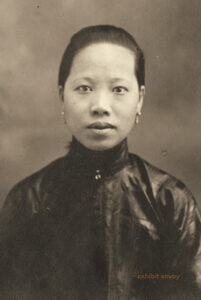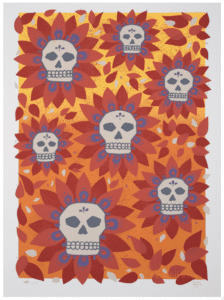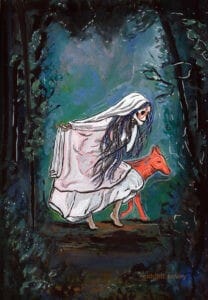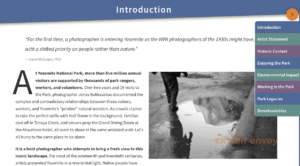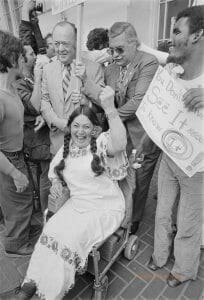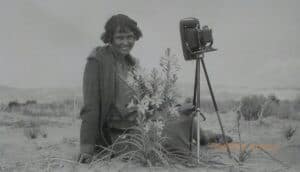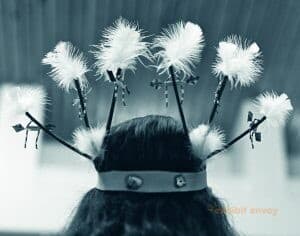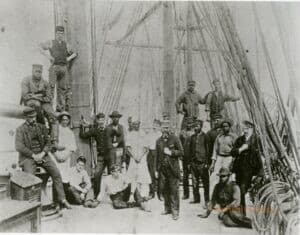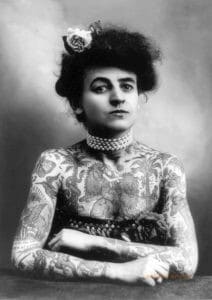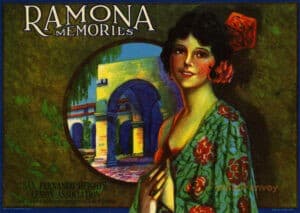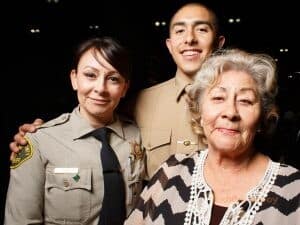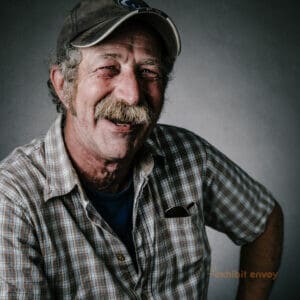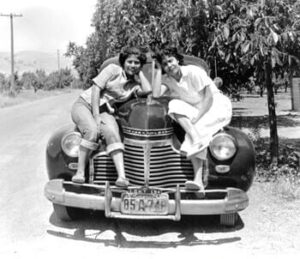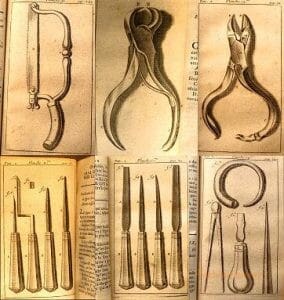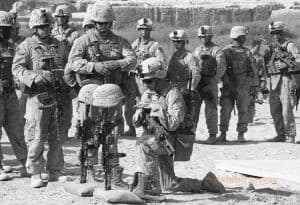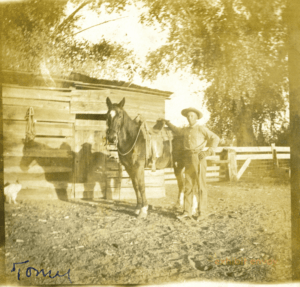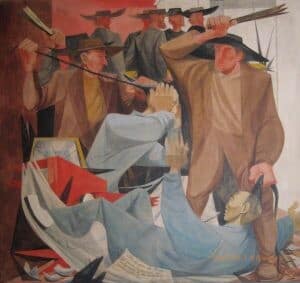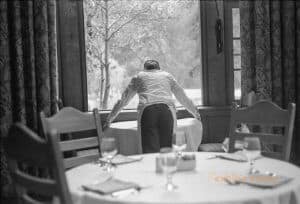“Am I An American or Am I Not?” explores the mass incarceration of over 125,000 Japanese Americans in WWII through stories of solidarity, loyalty, resistance, and resilience.
History & Culture
Retrace the 1873 cross-country journey of Jules Tavernier and Paul Frenzeny – and the development of the U.S. – through their detailed and colorful engravings of the American West.
Meet 10 grandmothers who have cooked, preserved, and passed on Mexican food culture while creating communities and cultures unique to Southern California.
The Smithsonian’s Americans exhibition explores how deeply intertwined American Indians are in the culture of the United States.
Through the lens of American photographer James Abbe, “An Age of Change” highlights how American people and ideals transformed over the first half of the twentieth century.
The story of one of California’s most beloved and feared animals – the grizzly bear.
“Breakthrough in Black: African American Cinema from the 1920s-1950s” returns early Black films and their directors, actors, and producers to the spotlight.
Iconic images of farmworker organizing efforts – including El Teatro Campesino – highlight how individuals and groups come together to enact social change, and how photojournalism played an important role in shaping the public’s perceptions of organizing efforts.
A visual history of the social, political, and judicial disenfranchisement of Chinese Californians — as well as moments of agency and resilience — before and after the 1882 Chinese Exclusion Act.
For Race and Country explores the origins and achievements of Buffalo Soldiers as well as the mystique surrounding the all-Black regiments.
“From Earthquakes to Epidemics” explores the impacts of disasters and epidemics throughout California’s history through art, history, and science.
Gadgets Galore! invites visitors to engage with history and explore historic houses through the lenses of gadgets and technology.
Illuminating the hardships, joys, and lives of female pioneers, Her Side of the Story features first-person accounts from women who traveled by land or sea to settle in California.
Through compelling woodcut prints and poetry, Look Again highlights the power and creativity of remarkable women from across the globe.
Showcase California’s long tradition of activist printmaking through vibrant works from the multicultural print center Mission Grafica.
¡Monstras! explores the enduring myths and legends surrounding 10 female Latin American monsters.
A visually arresting and powerful first-person history of one of the defining events of the 20th century through portraits and personal stories of Holocaust survivors.
Our beautiful online exhibits will help you engage with your visitors wherever they are.
Discover a remarkable, overlooked moment in U.S. history when people with disabilities took bold action to demand their rights.
Meet Susie Keef Smith and Lula Mae Graves, adventurous cousins who traversed and photographed the California desert in the 1920s with six guns and burros by their sides.
An authentic view of California Indian people, communities, and land with origins predating the arrival of colonizers. Dugan Aguilar’s photographs make visible the ties between that age-old origin and the contemporary existence of a “Native” California.
Take Me to the Water: Histories of the Black Pacific reveals the deep and historic connections between people of African descent and the Pacific Ocean.
Explore the fascinating and largely unknown stories of pre-World War II tattooed women and how they’ve shaped tattoo culture in the Golden State.
“Telling Stories of Mexican California” highlights 19-century Mexican American individuals and families, as well as reveals how early narratives – both real and imagined – helped create an enduring California mythos.
The journeys, hopes, dreams, and concerns of new U.S. citizens come to life through vivid color portraits and personal stories.
The Road I Call Home documents the powerful stories of 34 homeless people to build compassion for our unhoused neighbors.
Through Ricardo Alvarado’s photographs, “Through My Father’s Eyes” shares a rare view into the daily lives of Filipino Americans in the post-World War II era.
Explore the unusual, icky, scandalous, uncomfortable, and surprising artifacts in your collection with Unmentionable (license for framework/graphics).
Personal correspondence reveals an intimate perspective on how war can shape a life, a family and a community.
Since the Gold Rush, Black Californians have been part and parcel of rural areas. These little-known stories of African American farmers, ranchers, and rural residents challenge myths about who lived in and cultivated rural California.
The sweeping story of how freedom and equality have grown in California, from the gold rush right up to the precarious post-9/11 era.
The complex and nuanced relationships between Yosemite’s natural wonders and its five million annual visitors and workers come to life in “Yosemite People.”

